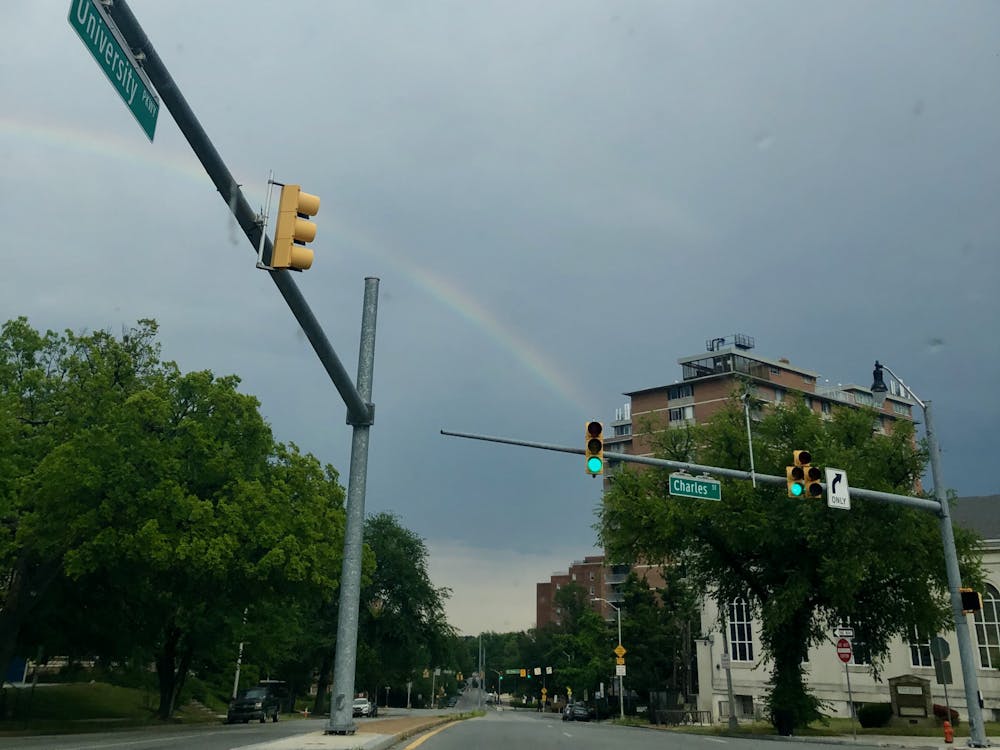In an email to undergraduate students and their families on August 23, University leaders disclosed that a small cluster of students living in off-campus housing in Charles Village had tested positive for coronavirus (COVID-19) after returning to Baltimore.
According to the email, the Johns Hopkins COVID-19 Call Center (JHCCC) is currently conducting a contact investigation to determine whether additional students have been exposed to the virus.
In an interview with The News-Letter, junior and Charles Village resident Mario Aguirre said that after reading the email, he and his friends decided to take extra precautions to limit possible exposure to the virus. However, he also condemned the email’s lack of immediate information.
“Hopkins should have given us more data about the COVID cases so we could better protect ourselves,” he said. “Right now there’s a real lack of leadership and communication. If they want to prevent an increased spread, they really need to start giving more details.”
On Tuesday, Vice Provost and Chief Risk and Compliance Officer Jonathan Links confirmed at a virtual town hall that the University will start using a virtual dashboard on Monday to release specific information about Hopkins-related COVID-19 cases. The dashboard will be updated on a daily basis.
According to Links, the University has been tracking COVID-19 cases in students, staff and faculty since the beginning of the pandemic, but numbers have not been high enough to warrant official statements.
“It’s been so low that we haven’t felt comfortable... sharing the cases or even the numbers school by school. There’s so few that we run the risk of people being able to put two and two together and identify individual cases,” he said. “Having said that, we know it’s time, entering into the fall, to... share at least aggregate numbers.”
In their email, University leaders also encouraged students to stay at home if possible.
“We want to emphasize once again the seriousness of the pandemic and the ease with which it can spread, and to urge you not to return to Baltimore if you are not already here,” they wrote. “We are as eager as you are to get back to campus and resume in-person classes and activities, but we must take the necessary steps now so we can return together in the future.”
If a student suspects that they have been exposed to COVID-19, the University recommends that they contact the JHCCC and self-quarantine for 14 days. Anyone permitted on campus must perform a daily health screening. Within the student body, only students who are living on-campus due to demonstrated hardship will be routinely tested for COVID-19 by the University.
The email also reminded students that failure to comply with the University’s COVID-19 policies could result in disciplinary measures. Such offenses include the refusal to wear a mask or practice physical distancing procedures, unauthorized presence on campus and participation in parties or events with more than 10 people.
“Please remember, as adults, you are accountable for your choices. And, as members of the Hopkins community, your behaviors have consequences,” the email wrote.
Similar outbreaks have occurred at other universities, including 33 COVID-19 cases at Georgia Institute of Technology and at least 100 cases at the University of North Carolina at Chapel Hill. At both institutions, large percentages of the spread were attributed to Greek life.
Charles Village resident Sonomi Oyagi, who completed her junior year in May and is taking a leave of absence, stated in an interview with The News-Letter that she found news of the cluster worrying.
“This is an example of a larger trend we’re seeing across the country of colleges being the new sites of COVID breakouts,” she said. “People should take the presence of a cluster of students with COVID at our university really seriously.”
In an email to The News-Letter, senior Catherine Siu, who lives just outside of Charles Village in Tuscany-Canterbury, described feeling personally upset by the situation.
“Hearing that other people, due to their negligence, were impacting my ability to remain here... was infuriating,” she wrote. “At home I don’t have as much of a constructive environment towards learning [so] having Hopkins send emails that continuously stress that we shouldn’t come and asking us to return back if possible is another huge stressor.”
Siu believes that the University should prioritize keeping students informed.
“While I understand the school needs to protect student privacy, the lack of details is also very troubling,” she said. “Whether the cluster was due to general community transmission or a party makes a very big difference to everyone.”
Junior Bradlee LaMontagne, who currently lives in Charles Village, told The News-Letter that he was not surprised when he got the email.
“It makes sense. Everybody’s coming back to school; they probably know each other, and they’re not social distancing or quarantining as they should be,” he said. “If you live in a big house... having a cluster would be super easy, because only one person needs to get sick and then the whole house is sick.”
LaMontagne hopes that the email will serve as a wake-up call to students and deter them from going to parties or seeing too many people.
Siu agreed with LaMontagne, sharing that her mother and sister had caught COVID-19 earlier this year, resulting in her mother’s hospitalization. Four months later, neither has recovered her sense of smell.
“I just hope that any student who is still convinced that they’re young and it won’t affect them... [will] reconsider their daily actions since it impacts everyone in Hopkins and the surrounding community,” she wrote. “We’re all socially starved, but I doubt losing your sense of smell or suffering neural deficits permanently is worth it.”
Rudy Malcom contributed reporting to this article.





